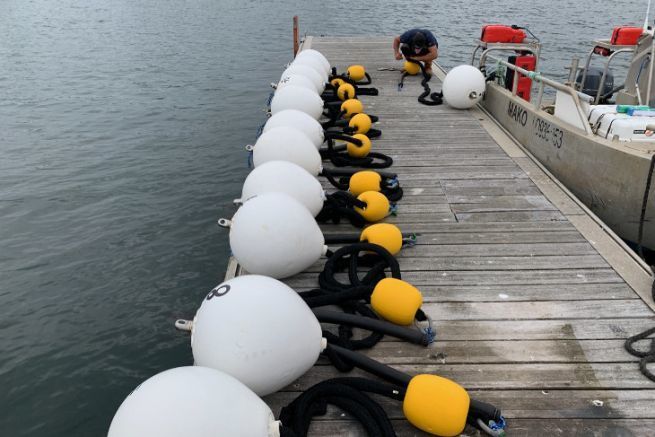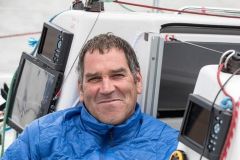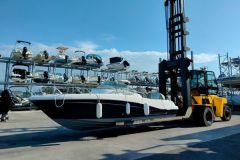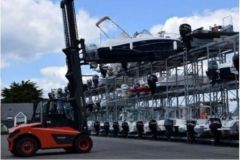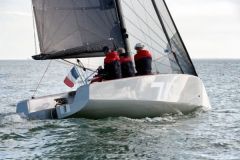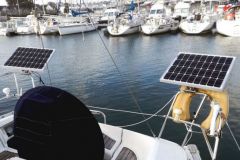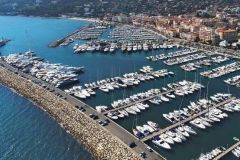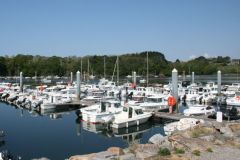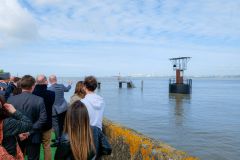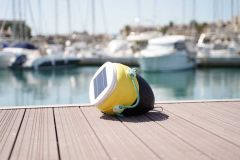A textile wetting solution with shock absorbers
The impact of moorings and anchorages on the seabed has been known for several years and companies are working on alternative solutions to chains. By dragging on the bottom, they cause irreparable damage to the bottom. Temano, a company based in Lorient and part of the Alpha Eco maritime works company, has developed an "ecological" anchoring system since 2020, which combines protection of the seabed with a reduction in the stress on boats.
The traditional anchor chain is replaced by a line formed from the bottom:
- a rubber shock absorber with dyneema core
- of a textile line
- an HDPE buoy
"The rubber shock absorber is one meter long, with a 4 meter dyneema core inside, which allows it to stretch up to 4 times its length. This allows it to absorb 12 kJ of energy, compared to 800 J for 5 meters of chain. The crimping of the rubber on the stainless steel is patented. For the buoy, as the line is lighter, we needed less buoyancy, so we were able to make it out of thicker HDPE and not foamed, but flexible and which takes the shocks of boats. The radius avoids damaging the orins." explains Quentin Demoulin, manager of Temano.
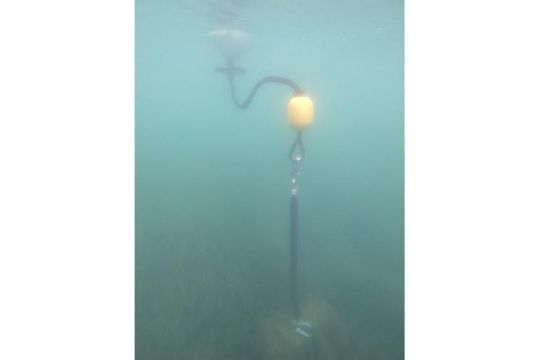
Drilled anchors
If the solution can be installed directly on traditional concrete moorings, Temano recommends installing them with its drilled anchoring systems. With a tool of its own design, the company comes to cross the bottom with a galvanized steel rod dug until it reaches the hard ground and penetrates it for 1 meter. Natural cement is then poured. "It's considered a temporary device and limits the impact around it. We can take back 20 T per foot and put in several." says the Temano manager.
Coupled, these anchors and their shock absorbers also allow the holding of a pontoon without chain, with a fixed position in a tidal zone, the elongation compensating the difference in height.
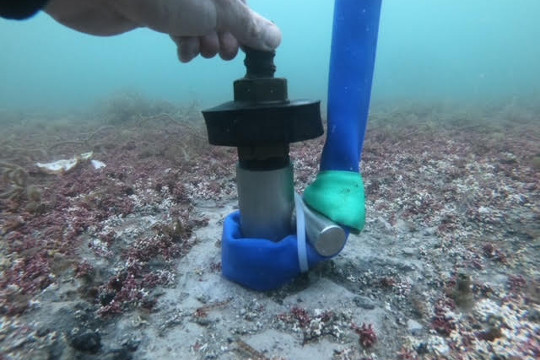
A favorable context for ecological moorings
By 2027, regulations will require all European Marine Protected Areas to use only moorings that have less impact on the seabed. Within the framework of the French Recovery Plan, the French Office for Biodiversity subsidizes these solutions up to 80%. Coupled with the cost of raw materials, these measures support the development of Temano and its factory in Ploemeur.
"There are 200 shocks installed since 2020. With the price of steel going up, there's an explosion of demand. We're cheaper than a traditional assembly line." concludes Quentin Demoulin.

